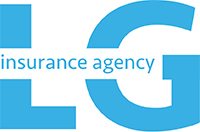If you are interested in purchasing a life insurance policy, then you already know that it is an important part of protecting your family. Purchasing life insurance can be confusing, what are your different options?
There are two major types of life insurance—term and whole life. Most people ask which is better, but as with most things, it depends on your specific situation. First of all, whole life is just one form of permanent life insurance, so it’s necessary to review your particular set of circumstances and coordinate it with the insurance type that matches best.
Term
Term Insurance is the simplest form of life insurance. It pays only if death occurs during the term of the policy, which is usually from one to 30 years. Most term policies have no other benefit provisions.
There are two basic types of term life insurance policies—level term and decreasing term.
- Level term means that the death benefit stays the same throughout the duration of the policy.
- Decreasing term means that the death benefit drops, usually in one-year increments, over the course of the policy’s term.
Whole Life/Permanent
Whole life or permanent insurance pays a death benefit whenever you die—even if you live to 100. There are three major types of whole life or permanent life insurance—traditional whole life, universal life, and variable universal life, and there are variations within each type.
In the case of traditional whole life, both the death benefit and the premium are designed to stay the same (level) throughout the life of the policy. The cost per $1,000 of benefit increases as the insured person ages, and it obviously gets very high when the insured lives to 80 and beyond. The insurance company could charge a premium that increases each year, but that would make it very hard for most people to afford life insurance at advanced ages. So the company keeps the premium level by charging a premium that, in the early years, is higher than what’s needed to pay claims, investing that money, and then using it to supplement the level premium to help pay the cost of life insurance for older people.
By law, when these “overpayments” reach a certain amount, they must be available to the policyholder as a cash value if he or she decides not to continue with the original plan. The cash value is an alternative, not an additional, benefit under the policy.
All situations are unique, but there are some general rules of thumb to follow when deciding which route to take:
- If affordability is your biggest concern, term life insurance is probably the way to go.
- Term life insurance is often recommended for young families because it provides the most coverage during a period in your life when expenses are high and your children are dependent on you and your income.
- Whole life may be more appropriate if you’re interested in using your policy as a way to build savings.
For more information, contact LG Insurance Agency, your local Jersey Shore insurance expert. There are many options available and the goal is to protect you and your family. Being fully insured is a building block towards a strong financial future, we can design a plan that fits your needs and your lifestyle.
All content provided in this blog is for informational purposes only. Topics discussed on this blog relate to insurance products and issues in a general application, and are not an offer of insurance, a guarantee of coverage, or applicable to specific and individual circumstances. Contact LG Insurance Agency for questions and information specific to your insurance needs.


